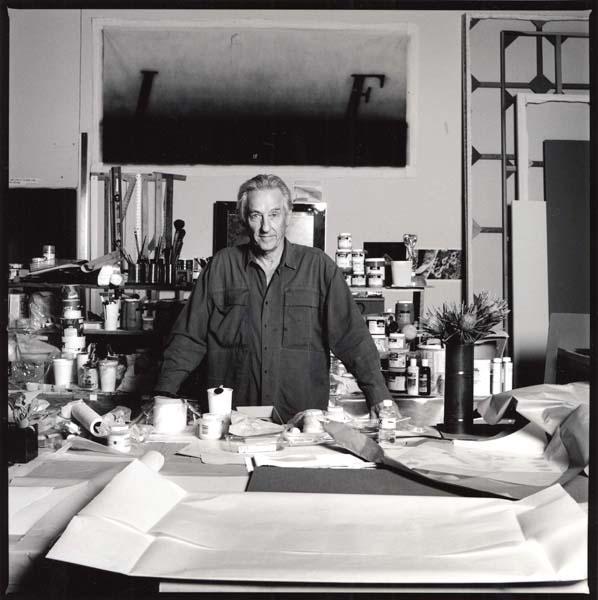Debate / Meeting
Ed Ruscha
Parole à l'histoire de l'art
11 Mar 2015

The event is over

Wednesday, 11 March 2015, 2:30PM, Centre Pompidou, Petite Salle, Niveau -1
2:30pm : Opening by Larisa Dryansky (Université Paris-Sorbonne/INHA), Benoît Buquet (Université François Rabelais Tours) et Jean-Pierre Criqui (Centre Pompidou)
2:40pm : Robert Dean, (Studio Ruscha, Los Angeles)
Rusha’s Inherent Vice
Art history has long placed Ed Ruscha within the 1960s pop art movement which has been a convenient assessment—especially with regard to his early well-known paintings. Likewise, he has been primarily known as a painter of words. This paper intends to reassess by means of text and illustrations how we regard Ruscha’s oeuvre and reveal aspects of his practice that have been by and large absent in critical discourse. It will examine Ruscha’s work in the mediums of painting, drawing, prints, photography and artists’ books to show a consistent and career-long concern with issues of change and destruction and most recently the depiction of the passage of time.
3:20pm : Lisa Turvey, (Studio Ruscha, New York)
Ruscha’s Early Drawings
This paper traces the development of Ruscha’s work in drawing. I will demonstrate how he engages and challenges the medium’s conventions, among them notions that drawing is preliminary or peripheral, that it is tied to creative ideation, and that it betrays the artist’s hand and process. A case will be made for the distinctiveness of Ruscha’s drawings not only with respect to his work in other mediums, but also in relation to the art historical contexts they register—the Abstract Expressionism to which his art is a rejoinder, the Pop art with which it was contemporaneous, and the Conceptualism to which it is now regarded as foundational.
4pm : Cécile Whiting, (University of California, Irvine)
City Optics
Analyzing the ways in which the gunpowder ribbon drawings were exhibited at the Iolas Gallery in New York City in 1967, at the Irving Blum Gallery in L.A. in 1968, and at the Contract Graphics Gallery in Houston in 1971 brings attention to the means by which these drawings evoked the various perceptual experiences of being in the city, especially the city of Los Angeles, in the 1960s. The drawings and their display respond to both motorized and aerial views of the city, while also hinting at the politics of surveillance in the late 1960s.
4:40pm : Jean Pierre Criqui, (Centre Pompidou, Paris)
Words in Their Best Order. Le Roman de Ruscha
The scenario is familiar: In a future more or less close to our times, an explorer from a distant galaxy arrives on Earth, where human beings and virtually all traces of humankind have been wiped out by some cataclysm. He discovers a number of documents that have survived the disaster - in this case, the catalogue raisonné of Ed Ruscha. The question is now to bring the scattered plates together in order to reconstruct something of this lost world. For an instant, we try to follow the thread of this fantasy in order to explore the decidedly singular paradox of a body of work where paintings and drawings are largely devoted to words, while the books consist mainly of images.
Closing remarks by Ed Ruscha
6:30pm : Book signing with Ed Ruscha – organized by the bookshop Flammarion, Centre Pompidou, ground floor.
Upon request of the artist, autophraphs will be given for acquired books from the book shop.

When
2:30pm - 7pm
Where
Partners
En partenariat avec l’Université François-Rabelais, Tours ; l’Université Paris-Sorbonne (Paris IV) ; et le Centre de Création Contemporaine de Tours
Avec le soutien de la Terra Foundation
